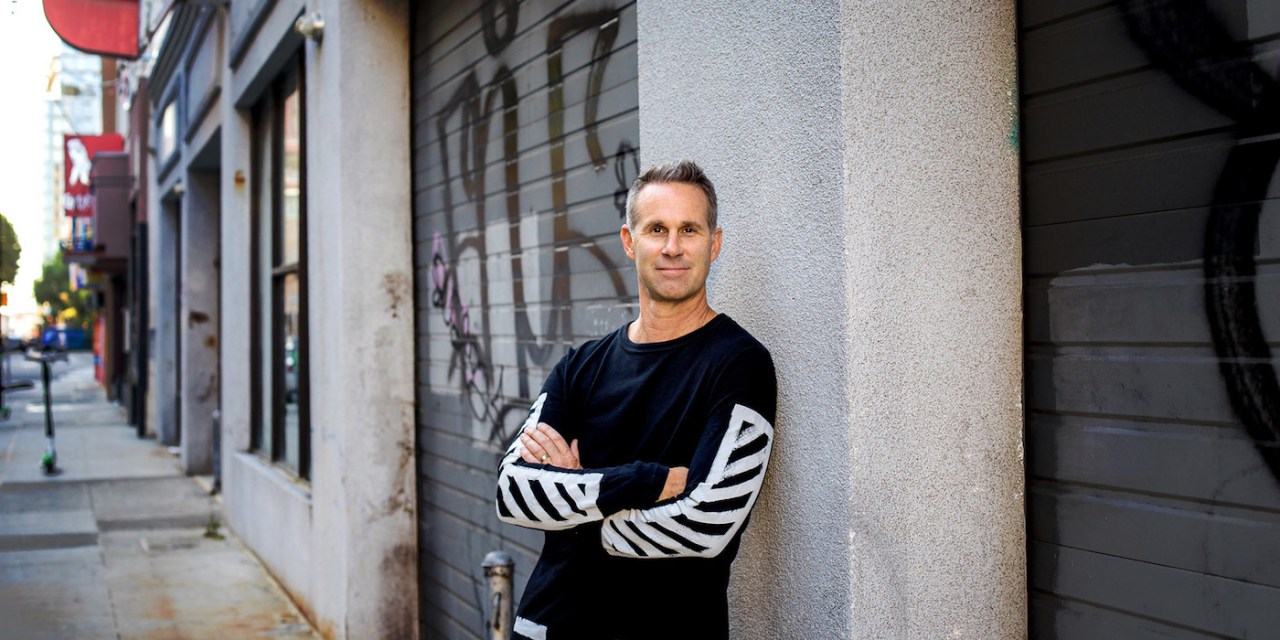StockX’s new CEO plans to position the sneaker marketplace as a brand partner

Scott Cutler, the new CEO of StockX, has experience getting brands to work with, not against, resale marketplaces.
As the former president of StubHub from 2015 to 2017, Cutler was responsible for signing partnerships with entertainment organizations and sports teams to bring a greater air of legitimacy to the resale ticket marketplace. Most recently, he served as senior vice president of the Americas for Ebay. Now Cutler is looking to convince more brands to join forces with StockX as the sneaker resale landscape gets more crowded.
On Wednesday, StockX announced, along with a new $110 million funding round, that Cutler would replace co-founder Josh Luber as CEO. Cutler first became an advisor to StockX in 2016. The funding valued the company at at more than $1 billion, making StockX the first sneaker resale marketplace to reach a billion-dollar valuation. StockX initially only allowed the listing of sneakers, but now customers can also buy resold handbags and watches.
Part of Cutler’s role will be to refine StockX’s business model. StockX describes itself as a stock market of things. Unlike other resale marketplaces, buyers bid on products. When a seller gets a new offer, they can either agree to sell it to the buyer right then and there, or they can keep it on the market in the hopes that they’ll get a higher offer. When a product is sold, the seller sends it to one of StockX’s authentication centers, where they confirm it’s legitimate and in good condition, and then ships it to a buyer.
Even with the addition of authentication centers, resale markets like StockX still have a larger trust barrier to overcome with consumers. Brands first have to know that their customers trust a resale market before agreeing to work with them, and that’s one thing Cutler will have to pitch potential partners on.
The influx of capital does not leave StockX immune from competition, particularly as other retailers place their bets on other sneaker marketplaces. Foot Locker invested $100 million in GOAT last year, while Stadium Goods sold a stake to luxury brand conglomerate LVMH before being acquired by Farfetch last year. Like any other e-commerce platform, customers will flock to the resale marketplace that they know will have product that they can’t find anywhere else (in addition to the marketplace that offers them good deals, and ensures that resale products are in good condition. And one way for resale marketplaces to get that is through brand partnerships.
When Cutler took over as president of StubHub in 2015, one of his main priorities to sign deals with music festivals and sports teams to become their exclusive resale ticket provider. The pitch was that StubHub could help these companies reach their fans more efficiently on the resale market, while also at the same time extending StubHub’s reach. In 2016, StubHub signed a deal with the New York Yankees to become the baseball team’s exclusive resale ticket provider, after the Yankees tried and failed to build their own ticket resale marketplace. But, StubHub did cede some control to the Yankees in order to sign the deal — it allowed them to set a limit on how much their tickets could be discounted.
Ad position: web_incontent_pos1
Despite dealing in event tickets vs. products, Cutler said he sees more similarities between StubHub and StockX than Ebay and StockX, as both StubHub and StockX are more dynamic marketplaces, where price is determined by supply and demand.
“We were able to create an opportunity for [companies] to understand the data, understand the customers, and participate directly in this marketplace — I see a lot of those same trends that will continue [at StockX]” Cutler said.
So far, the primary way StockX has partnered with brands is through its own marketplace version of initial public offerings, which it first started partnering with brands on in 2016. StockX and the brand work together to release a limited quantity of new product on StockX first. StockX sets an opening bidding price, and the customers then can bid on items for a select period of time. Once the bidding window closes, the highest bidders can either take possession of the product, or resell it on StockX.
It gives brands another channel to turn to when they want to do limited edition product drops, and one that gives them insight into how the product performs on a resale market from the beginning of its lifecycle. Brands that tested out these IPOs with StockX early on include Shinola and Nike, which did one in conjunction with the Cleveland Cavaliers after they won the NBA championship in 2016. Cutler confirmed that he would be looking to do more of these types of partnerships.
“We think it’s going to be a great model for brands to interact directly with the customer and understand how they can play into a dynamic marketplace like ours,” Cutler said.
Ad position: web_incontent_pos2
But Andy Ruben, founder and CEO of Yerdle, which has worked brands like Patagonia and Eileen Fisher to develop their own resale marketplaces, said it’s the desire for a direct relationship with customers that will limit how much brands are willing to work with third-party marketplaces like StockX.
“Brands need to protect the essence of their brand, availability of hard to find items, and direct relationships with customers,” Ruben said. “The resale market and one time product drops are key opportunities for brands to build and deepen these relationships and all brands should be careful in ceding these to competing retailer channels.”
—
Sign up for the Modern Retail Briefing to get retail news, analysis and insight delivered to your inbox every morning.

